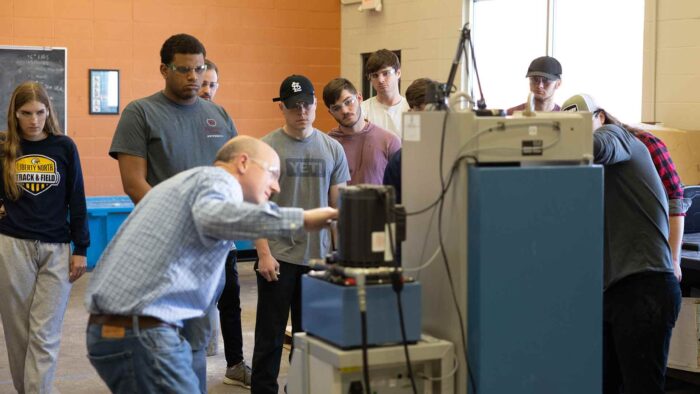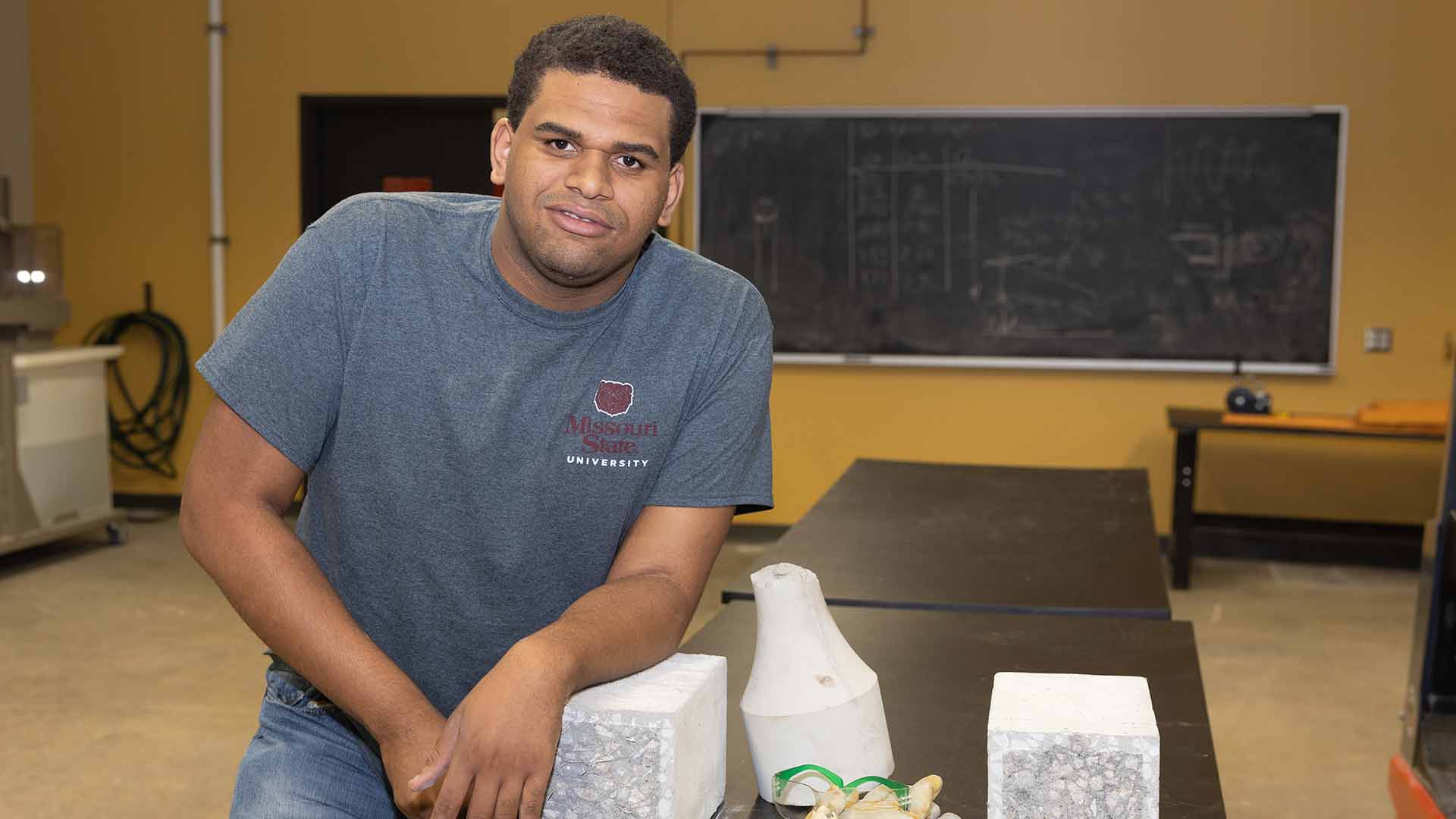Nothing captivated Luther Harris like a well-made highway sign.
Growing up, those signs were his best literacy tool.
“My parents took me to therapy and the one thing that helped me read were highway signs. I was very into the design of signs and how highways and interchanges worked. I loved the complexity,” Harris said. “The more I got into it, I discovered this was something I wanted to do long-term.”
Harris has continued his “child-like obsession” as a civil engineering major at Missouri State.
Transportation engineering, a branch of civil engineering, is Harris’s specialty.
These engineers oversee the infrastructure – roads, bridges, highways – that move people and products.
It’s vital work but often overlooked.
“We take infrastructure for granted until it starts breaking down,” Harris said. “When we drive to work every day, we’re putting our lives in the hands of an engineer. We’re trusting them to know that a bridge or road is safe.”
New voices at the table
Harris knows his history.
During the highway boom of the 1950s, not everyone had an equal say in the planning process. Low-income areas suffered the most.
“The highways were being built next to poorer neighborhoods, which were typically where people of color lived,” he said. “They were not represented in the room when those decisions were made.”
“Part of my mission when I came to this field was that I want it to be more inclusive. I want everyone to be at the table when we make major decisions.”
Shortcomings remain, and Harris plans to change that.
He wants to be a voice for equality in key infrastructure projects like highways, interchanges and rail lines.
“It’s important to have more people of color inside engineering because if they’re not in the room at all, decisions will be made without them and it probably won’t be to their benefit,” he said.
Harris already has something every aspiring engineer needs: experience.
Harris is president of the MSU student chapter of the American Society of Civil Engineers (ASCE). He’s also co-captain for the MSU Steel Bridge Team, which regularly earns competition awards.
“When companies look at your resume, you may have a 3.5 GPA – and that’s a good thing – but if your experience isn’t there, you’re less likely to get hired.”
Checking all the boxes

For his engineering degree, Harris preferred an out-of-state school where he wouldn’t just be another face in a crowded class.
Harris, who is autistic, also needed to go somewhere that supported students with learning differences.
Missouri State and Missouri S&T’s cooperative engineering program met his criteria.
“It’s a smaller program where the (faculty) are actually wanting to teach you about civil engineering,” said Harris, a Texas native. “And it is a community environment – all the students know each other. I was able to befriend a lot of my teachers and classmates and find my own voice inside.”
Planning for a career in the public sector, Harris will use his childhood hobby to spark change.
“I want to do things that will help my community,” he said. “It’s a reason why I want to do this: To be an advocate.”

